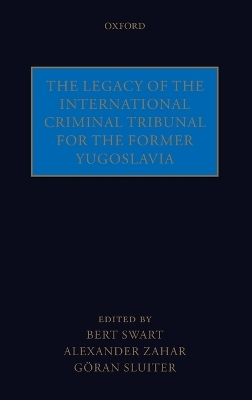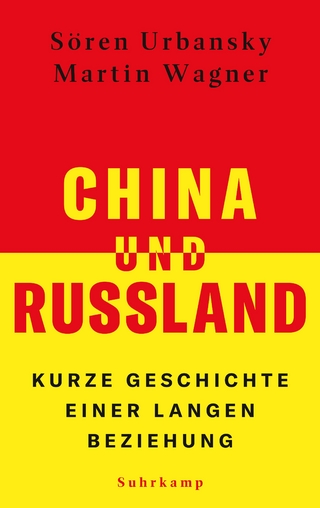
The Legacy of the International Criminal Tribunal for the Former Yugoslavia
Oxford University Press (Verlag)
978-0-19-957341-7 (ISBN)
The International Criminal Tribunal for the Former Yugoslavia (ICTY) was established in 1993 and is due to complete its trials by 2011. Easily the most credible and prodigious of the international tribunals established in this period, the ICTY is by far the most important source of case law on international criminal law. This is reflected in the citations it receives by other courts and by learned commentators. Long after its dissolution, the ICTY will most likely serve as an important frame of reference for the International Criminal Court and other courts dealing with international crimes, including national courts.
The publication of this book coincides with the year of cessation of trial activity at the ICTY. Its purpose is to mark this significant milestone in international law with a series of in-depth, critical reflections on the institution's legacy by eminent scholars and practitioners. In the course of seventeen chapters, the contributing authors analyse the main features of the ICTY's work in an unprecedented examination of the institution's legitimacy, core principles, methodologies, unstated assumptions, political circumstances, and impact-and indeed, its legacy.
Bert Swart studied law at both the University of Nijmegen, the Netherlands, between 1959 and 1964, and the University of Poitiers, France, between 1964 and 1965. He was Professor of Criminal Law and Criminal Procedure at the University of Utrecht between 1980 and 1996. He has been a Professor of International Criminal Law (Van Hamel Chair) at the University of Amsterdam since 1996. Since 1994, has been a member of the Royal Netherlands Academy of Arts and Sciences, as well as, since 1999, a member of the Conseil de Direction of the Association Internationale de Droit Penal. He is a member of the board of editors of the Journal of International Criminal Justice. In December 2003, Professor Swart became an ad litem judge at the ICTY. Prior to that, and since 1996, he was a judge in the Criminal Division of the Amsterdam Court of Appeal. He was also a member of the Committee on Extradition and Human Rights of the International Law Association between 1992 and 1997. Alexander Zahar was a Legal Officer in the Chambers of the International Criminal Tribunal for Rwanda (2000-2002) and the International Criminal Tribunal for the former Yugoslavia (2003-2007). While at the ICTY, he authored, with Goran Sluiter, the textbook International Criminal Law: A Critical Introduction (Oxford University Press, 2008). He has published several scholarly articles on international criminal law. Dr Zahar is now a lecturer in law at Griffith Law School, in Queensland, Australia, where he teaches criminal law, international law, and climate law. Goran Sluiter is Professor of International Criminal Law, in particular the Law of International Criminal Procedure at the University of Amsterdam and a judge at the Utrecht and The Hague District Courts. In the latter capacity, Sluiter sat on the Van Anraat case, the first genocide case in the Netherlands. Previously, he worked as a Senior Lecturer in Criminal Law at the University of Amsterdam and a Lecturer in International Law at Utrecht University.
I. A DISTANT COURT; II. PROCESS AND RIGHTS: THREE VIEWS; III. BATTLEFIELDS; IV. IMPROVISATION AND RESILIENCE; V. LEGACY IN BRICKS AND MORTAR
| Erscheint lt. Verlag | 19.5.2011 |
|---|---|
| Verlagsort | Oxford |
| Sprache | englisch |
| Maße | 175 x 240 mm |
| Gewicht | 1030 g |
| Themenwelt | Recht / Steuern ► EU / Internationales Recht |
| Sozialwissenschaften ► Politik / Verwaltung ► Europäische / Internationale Politik | |
| ISBN-10 | 0-19-957341-7 / 0199573417 |
| ISBN-13 | 978-0-19-957341-7 / 9780199573417 |
| Zustand | Neuware |
| Informationen gemäß Produktsicherheitsverordnung (GPSR) | |
| Haben Sie eine Frage zum Produkt? |
aus dem Bereich


